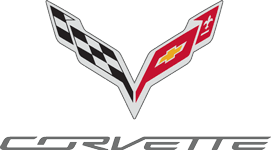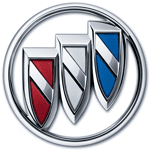Overview
This is the first annual report of Lounsbury Company Limited (“LCL”) under the Fighting Against Forced Labour and Child Labour in Supply Chains Act, S.C. 2023, c. 9 (the “Act”). The report is for the fiscal year ending December 31, 2023.
The is a joint report that includes Lounsbury Automotive Limited (LAL), a wholly owned subsidiary of LCL.
This report introduces the efforts we have taken to identify and understand the risk of forced labour and child labour in our operations and supply chain. Furthermore, it will serve as a working document to enhance awareness and control procedures within the organizations to minimize potential risk.
LCL is committed to operating ethically and complying with all relevant laws and employment standards that serve the fight against forced labour and child labour.
Structure, Activities and Supply-Chain of (LCL) and (LAL)
LCL serves dual functions as a holding and real estate company for its automotive and furniture retail locations, as well as a direct retailer of furniture, appliances and electronics from two Lounsbury Furniture locations within the province of New Brunswick.
Lounsbury Automotive Limited (“LAL”) is a wholly owned subsidiary of LCL and operates four General Motors automotive dealerships under the Lounsbury name within the province of New Brunswick.
LCL is a privately owned business with retail and service operations in the province of New Brunswick. All of LCL’s and LAL’s operations and employees are based in New Brunswick and business adheres to the applicable provincial laws.
As a furniture retail business, LCL does not manufacture its own furniture or appliances, nor does it directly or indirectly control any manufacturers. Instead, it sources product from a limited number of large and well-established vendors with business operations in Canada and the United States. The vast majority of these purchases are facilitated via an industry buying group that is headquartered in Canada. We have placed reliance on information provided by them to assess risk and quantify purchases. Approximately 90% of LCL’s product is sourced from only 20 vendors. Furthermore, 99% of the dollar value of our purchases are from vendors in North America.
It is noted that some LCL vendors source from manufacturing facilities in Canada, the United States, Mexico, Vietnam, China and Malaysia. LCL sources internationally manufactured goods through North American direct manufacturers with overseas facilities. LCL maintains working relationships with well-established suppliers to ensure ethical manufacturing and labour practices. LCL’s values include fair and equitable pay and treatment of employees.
LAL is the operating entity for the General Motors of Canada auto dealerships operated by the Group. LAL’s activities include the selling of: new and used vehicles; parts and accessories; vehicle repair and service; and the facilitation of vehicle finance, insurance and warranty products related to the sale or lease of vehicles.
As an approved franchised dealership, we source virtually all of our new products from this
manufacturer. Supply chains in the automotive industry are inherently complex due to the large number of components and materials involved in vehicles. Our suppliers have diverse supply chains that involve input from many countries.
We place reliance on our original equipment manufacturer (OEM) for their supply chain policies and procedures for assessment of risk in this area.
The Risk of Forced Labour and Child Labour in Operations and the Supply Chain
Our operations and employees are domiciled in New Brunswick, Canada. We have a thorough
understanding of the local business environment and statutory requirements and consequently we assess the risk of engaging in forced labour and child labour as low.
We understand that a potential risk area for LAL in contributing to modern slavery practices exists within the supply chain serving our original equipment manufacturers (“OEMs”). Our primary automotive OEMs are international conglomerates that adhere to strict governance and reporting mandates. Although the risk of forced and child labour was not assessed in the reporting period, subsequent to the reporting period, LAL has concluded that there is a low risk.
The majority of the furniture and appliances sold by LCL and its subsidiaries are manufactured in North America. The primary non-North American sources of product are Vietnam, China and Malaysia. Although the risk of forced and child labour was not assessed in the reporting period; subsequent to the reporting period, LCL has concluded that there is not a high risk of forced labour or child labour being used in this supply chain.
LCL and LAL acknowledge that the OEM’s and/or Tier 1 suppliers may not be the direct providers of some raw materials to the end products. This limits our visibility and information on the lower tiers to the supply chain. While suppliers label the country of origin for assembled products, LCL is currently not able to verify where the individual components for such products (e.g., the upholstery for furniture) are sourced. The organization recognizes that it has a responsibility to take a robust approach to slavery and human trafficking. The organization is committed to preventing slavery and human trafficking in its corporate activities, and to ensuring that its supply chains are free from slavery and human trafficking.
Awareness and Training
Subsequent to the reporting period LCL has conducted awareness briefings with board members and senior executives on the new legislation that has focused on Canada’s obligations with respect to the elimination of forced labour and child labour, the specific obligations arising from the Act, and an assessment of LCL supply chain and resulting risks.
Due Diligence and Steps Taken
LCL works with reputable suppliers, many of whom also meet the “entity” threshold for reporting under the Act. During the reporting period LCL has not made specific inquiries into labour practices. However, the business is in the process of integrating such inquiries into its supplier and vendor due diligence. LCL is also inquiring with its key suppliers and sourcing partners to gain a more thorough understanding of their business practices. LCL does not conduct factory inspections of facilities, but we do note that its imported products must comply with the prohibition against forced labour and child labour as set out in the Customs Tariff.
Assessment of Effectiveness
A formal method to assess the effectiveness of our policies and procedures was not established within the reporting period. During the next reporting period we plan to initiate more formal training for senior management involved in supply chain procurement risks as they relate to forced and child labour. We will review our Human Resource practices and procedures and update our policies and manuals where determined necessary. Also, we will continue to monitor and demand more communication and accountability from our OEM’s and vendors.
Remedying Forced Labour and Child Labour
To date, LCL has not encountered any instances of forced labour or child labour in its supply chain. As such, the business has not had to take any measures to remedy specific misconduct or to remediate the loss of income to vulnerable families resulting from such measures.
Approval
This report has received approval from the Board of Directors of Lounsbury Company Limited.
In accordance with the requirements of the Act, and in particular section 11 thereof, I attest that I have reviewed the information contained in the report for the entities listed above. Based on my knowledge, and having exercised reasonable diligence, I attest that the information in the report is true, accurate and complete in all material respects for the purposes of the Act, for the reporting year listed above.

Edward McNally, CPA
President and CEO
May 31, 2024
I have the authority to bind Lounsbury Company Limited













